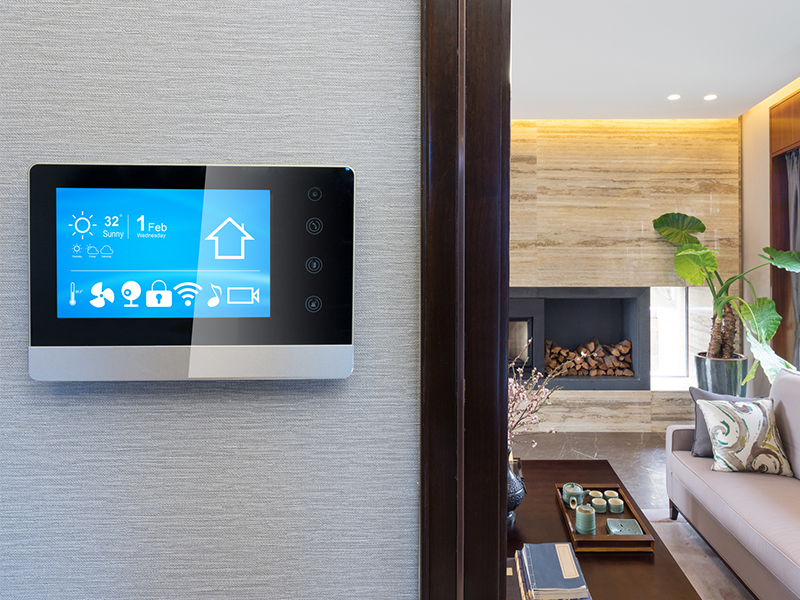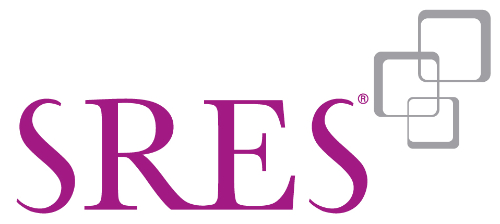
As technology continues to evolve, it’s transforming the way people live—and that includes how older adults live in retirement. A growing number of 55+ communities are embracing the integration of smart home technology and other cutting-edge amenities, revolutionizing the retirement experience. From enhancing safety and security to increasing convenience and promoting independence, these innovations are making it easier than ever for residents to enjoy a fulfilling, comfortable, and worry-free lifestyle.
In this blog, I’ll explore some of the most popular smart home features and technology trends that are shaping modern retirement communities.I’ll look at how these innovations are improving the lives of retirees and making 55+ communities more appealing for tech-savvy seniors who want to stay connected and age in place with peace of mind.
-
Smart Home Technology: A Game Changer for Aging in Place
The concept of “aging in place”—remaining in one’s home as they grow older—has gained significant traction in recent years. With the right technology, seniors can live more independently while staying connected to loved ones and caregivers. This is particularly important in 55+ communities, where residents want to enjoy their privacy and autonomy but may also need assistance from time to time.
Key Features of Smart Homes in 55+ Communities
Voice-Controlled Assistance
Voice-controlled devices, such as Amazon Alexa, Google Assistant, and Apple Siri, allow residents to manage various aspects of their home simply by speaking. From adjusting the thermostat to controlling lights, locking doors, or even placing grocery orders, voice commands are a simple and convenient way for seniors to interact with their environment. For individuals with limited mobility, this hands-free control is a game-changer.Smart Thermostats
Climate control is critical in maintaining comfort, especially for older adults who may be more sensitive to temperature fluctuations. Smart thermostats, such as the Nest or Ecobee, learn a resident’s preferences over time and automatically adjust the temperature for maximum comfort and energy efficiency. These systems can also be controlled remotely via smartphone, allowing for pre-conditioning of the home before residents even arrive.Smart Lighting
Smart lighting systems, such as Philips Hue or Lutron, enable seniors to adjust the brightness and color of lights, set schedules, and even create lighting scenes based on time of day or activity. This can help residents avoid the risk of falls by ensuring that hallways and bathrooms are adequately lit at night. For those with visual impairments, smart lighting can help illuminate dark areas more effectively.Smart Doorbells and Security Cameras
Security is a top priority in any retirement community, and smart doorbells like Ring, Nest Hello, and SkyBell offer video monitoring and two-way communication. These devices allow residents to see and speak to visitors at their door, whether they’re home or away, providing peace of mind when it comes to safety. Additionally, smart cameras and motion detectors can be integrated into the home’s security system, alerting residents or loved ones to unusual activity around the property.Smart Locks
For those like me who are constantly looking for their keys, smart locks offer a better alternative. Smart locks such as Aqare or Schlage allow one to unlock doors with a smartphone app or a keycode. Both locks are compatible with Alexa and Google Home, allowing for voice activated entry. Yale Assure and the Lockly Flex Touch Pro can read your fingerprint adding an extra layer of security.Health Monitoring Devices
One of the most valuable aspects of smart home technology for seniors is the ability to monitor their health remotely. Wearable devices like Fitbit or Apple Watch track vital signs such as heart rate, blood oxygen levels, and physical activity, providing important data that can be shared with doctors or caregivers. In some cases, these devices can even detect falls and alert emergency contacts or first responders. -
Technology-Driven Amenities in 55+ Communities
Beyond the individual smart home features, many 55+ communities are incorporating high-tech amenities that promote a more active, social, and engaged lifestyle. These amenities go beyond mere convenience and actually enhance the residents’ overall experience, offering opportunities for social interaction, lifelong learning, and even better health outcomes.
Fitness Centers with Virtual Classes
Staying active is essential for seniors, both for physical and mental well-being. Many modern 55+ communities are upgrading their fitness centers with state-of-the-art equipment, including smart machines that track progress and provide real-time feedback. These centers often feature virtual classes for activities like yoga, Pilates, and even high-intensity interval training (HIIT), which can be tailored to various fitness levels. Residents can also join fitness challenges and interact with fellow participants through community apps or digital bulletin boards.
Connected Social Spaces
For seniors who are looking to stay socially engaged, technology has made it easier than ever to connect with neighbors and friends. Many 55+ communities are creating connected social spaces equipped with high-speed Wi-Fi, interactive screens, and virtual communication tools. Residents can join community-wide video chats, attend digital happy hours, or even participate in virtual book clubs. These spaces offer an inclusive and engaging environment for those who want to stay active and involved, even if they can’t always participate in person.
Smart Kitchens and Dining Experiences
For retirees who love to cook or socialize around food, the integration of smart kitchen appliances can transform mealtime. From refrigerators with built-in cameras to check for inventory, to ovens that can be preheated remotely, smart kitchen devices are making cooking both more convenient and fun. Some communities also provide “smart dining” experiences in community dining rooms, where menus can be viewed and ordered through an app, or dietary preferences can be tracked via residents’ profiles, ensuring that each meal meets individual health needs.
Transportation Services with GPS Integration
Many 55+ communities now offer on-demand transportation services with smart GPS technology. These transportation systems allow residents to request a ride from their smartphones, ensuring that they can easily attend appointments, visit friends, or participate in community events without having to rely on personal vehicles. With GPS integration, these services can offer the most efficient routes and even track real-time locations, providing both safety and convenience.
Smart Entertainment Systems
Entertainment options in retirement communities have also been elevated through technology. Communities may offer access to streaming services, smart TVs, and interactive entertainment hubs. Some 55+ communities even set up community-wide movie nights or virtual concert viewing parties, where residents can watch films or listen to live performances from the comfort of their homes. With smart devices, controlling these entertainment options is simple, whether it’s streaming a movie, adjusting the sound system, or managing a virtual game night with friends.
-
The Future of Tech-Savvy Retirement Living
As smart home technology continues to evolve, we can expect even more innovations tailored to the needs of older adults. In the near future, we may see even greater integration of artificial intelligence (AI) into 55+ communities, with personalized virtual assistants that can help with everything from managing healthcare appointments to reminding residents about daily medications. Advanced sensors could monitor home environments for potential hazards, automatically adjusting lighting and temperature based on real-time conditions. Additionally, robotic assistants may become a more common sight, helping with daily tasks such as cleaning, cooking, or even providing companionship.
With the rise of autonomous vehicles, some communities may even offer driverless shuttle services to transport residents to nearby shopping centers, medical appointments, or social gatherings. In fact, the convergence of smart home technology, AI, and autonomous transportation could make it possible for many seniors to live more independently than ever before, with little need for external assistance.
-
Why 55+ Communities Are Embracing Smart Technology
The integration of smart home features and tech-driven amenities is not just about providing convenience; it’s about enhancing the quality of life for residents. By embracing these technologies, 55+ communities can offer greater autonomy, safety, and peace of mind to their residents, helping them live independently for as long as possible. Smart homes help reduce physical strain and mental stress, while innovative community amenities foster engagement and connection.
For real estate agents, embracing these trends means appealing to a growing market of tech-savvy seniors who want to live in homes and communities that reflect their digital lifestyles. As the demand for technology-rich environments continues to grow, forward-thinking 55+ communities will be at the forefront of redefining retirement living, offering a combination of comfort, convenience, and connectivity that enhances the retirement experience.
Conclusion
The retirement landscape is changing, with smart home technology and innovative amenities playing a pivotal role in shaping the future of 55+ communities. By integrating technology that enhances safety, convenience, and social engagement, these communities are empowering residents to live more independently and enjoy a higher quality of life. Whether it’s controlling the home environment with a voice command or accessing healthcare services remotely, technology is making it easier for retirees to enjoy a worry-free and fulfilling lifestyle. As the demand for smart homes grows, 55+ communities that prioritize tech-savvy features will be well-positioned to meet the needs of the next generation of retirees.



